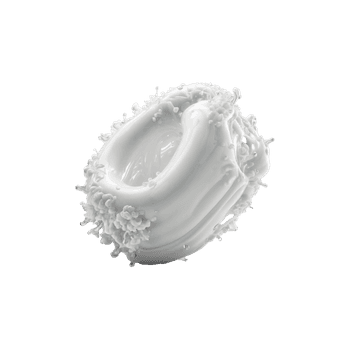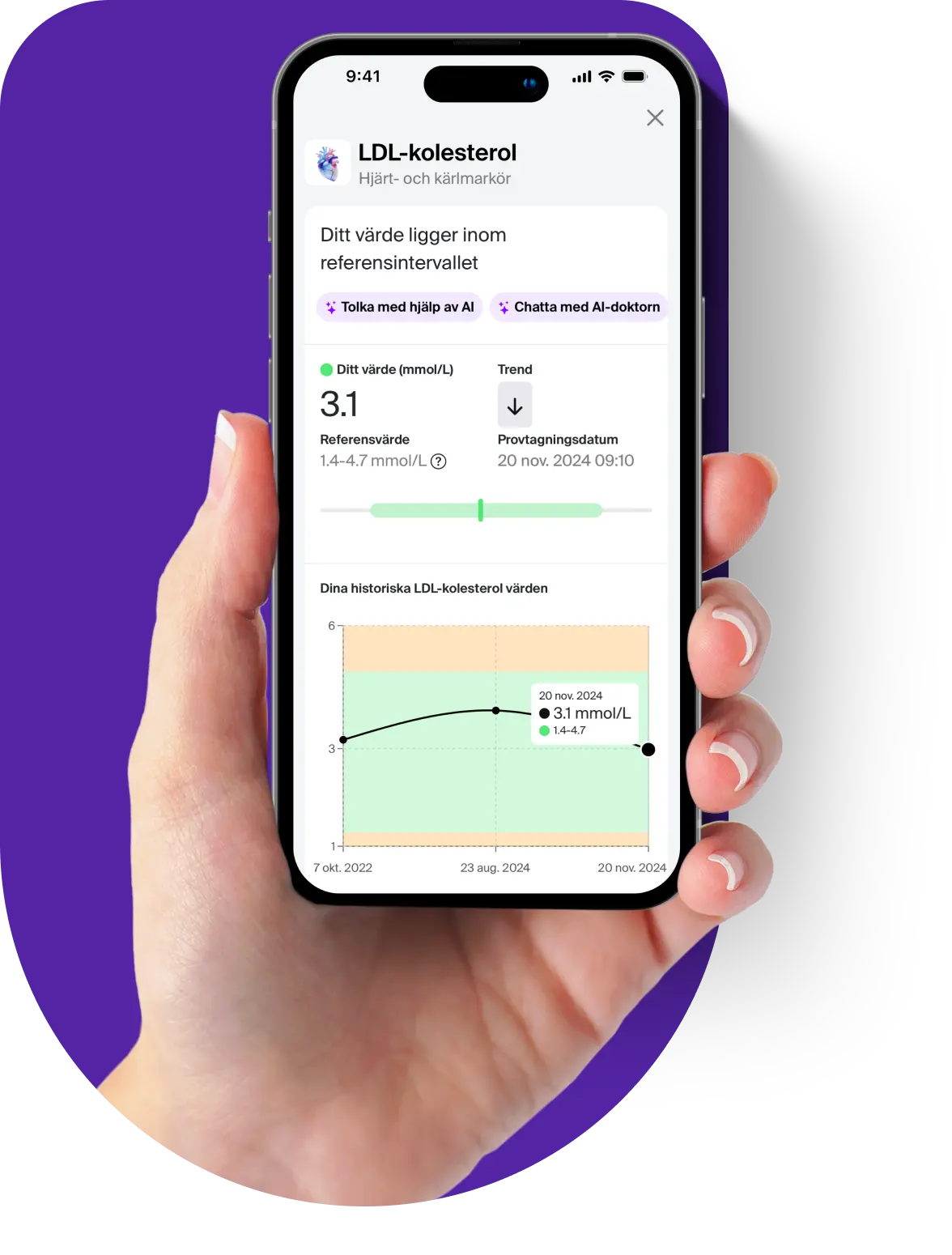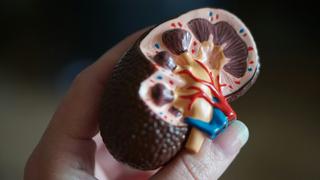What is eGFR cystatin C?
This analysis specifically refers to the calculation of eGFR (estimated Glomerular Filtration Rate) based on plasma levels of cystatin C. It is a sensitive and reliable method for assessing kidney function and complementing creatinine-based measurements when needed.
eGFR is a measure of the kidneys' ability to filter waste products and regulate the body's fluid balance, electrolytes, and pH. The kidneys play a central role in eliminating medications and other substances from the blood. Impaired kidney function can result in medications and waste products remaining in the body longer, potentially causing harm.
How is eGFR measured?
eGFR can be estimated through blood tests that measure levels of creatinine and/or cystatin C in plasma. The result is calculated using specific formulas and expressed as milliliters per minute per 1.73 m² body surface area (mL/min/1.73 m²). For cystatin C, a dedicated equation is used, providing a reliable measure of kidney function, particularly in cases of suspected early kidney damage or for individuals where creatinine-based methods may be misleading (e.g., older adults or those with atypical muscle mass).
When should eGFR cystatin C be used?
- To assess kidney function in individuals with suspected or known kidney disease.
- To complement creatinine-based GFR calculations in patients with atypical muscle mass, such as older adults or individuals with significant obesity.
- To monitor patients taking medications that may affect the kidneys.
- To detect early kidney damage before symptoms appear.
What do the results of eGFR cystatin C indicate?
Reference values:
- A normal eGFR is usually above 90 mL/min/1.73 m².
- Levels below 60 mL/min/1.73 m² may indicate reduced kidney function.
- Severe kidney failure is indicated by levels below 15 mL/min/1.73 m².
What does a low eGFR mean?
- Acute or chronic kidney damage.
- Dehydration or low fluid intake (temporary effect).
- Effects of certain medications.
What can you do?
If the result shows reduced kidney function, this should always be discussed with a doctor for further evaluation and potential treatment. Lifestyle changes, such as increasing fluid intake and avoiding nephrotoxic medications, may also be important.
Important considerations for sampling:
- eGFR cystatin C may be affected by temporary dehydration, infections, or other acute conditions.
- For the best results, you should be well-hydrated before sampling.






























